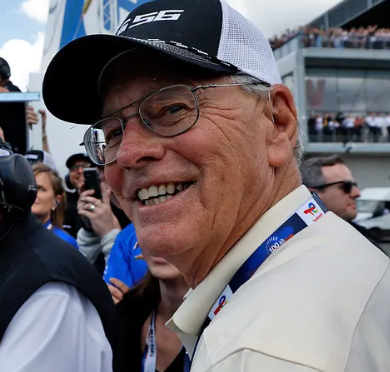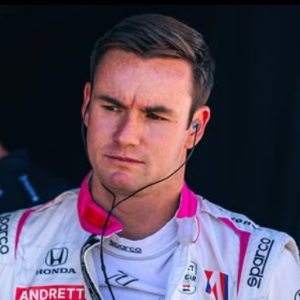The court ruling in favor of NASCAR represents a significant moment in the sport, highlighting the tensions between established practices and the desire for reform
The path ahead remains uncertain, but one thing is clear: the debate over NASCAR’s charter system is far from over.
Whether through the court’s decision, fan pressure, or internal reforms, this lawsuit has brought to light critical issues that could shape the future of NASCAR for years to come.
A ruling in favor of 23XI Racing and FRM could challenge NASCAR’s authority and inspire similar actions from other racing teams, while a ruling in favor of NASCAR could reinforce the governing body’s power to maintain its traditional structure.
Regardless of the outcome, this legal battle underscores a growing demand for fair competition and equitable policies in sports.
For 23XI Racing, FRM, and other stakeholders, the decision could represent a pivotal moment in the evolution of NASCAR.

Also Read: Parker Kligerman and Shannon Caught on Girlfriend Cam – Big Machine Racing Fans Go Wild
Table of Contents
Jim France: Ruling Against 23XI Racing and Front Row Motorsports
- The NASCAR fanbase has been vocal following a recent federal court ruling against 23XI Racing and Front Row Motorsports (FRM) in their lawsuit against NASCAR and CEO Jim France.1
- The two teams filed suit alleging monopolistic practices and sought a preliminary injunction to secure their charters for the 2025 season.
- However, District Judge Frank D. Whitney sided with the defendants, denying the preliminary injunction, leaving NASCAR fans divided.
- The conflict between the teams and NASCAR over charters began in the weeks leading up to the NASCAR playoffs at Atlanta Motor Speedway. In early September, NASCAR presented the teams with a proposal to renew charters, setting a midnight deadline of September 6 for approval.
- Failing to meet the deadline meant risking the potential loss of current charters, a status that guarantees a place in every points-paying race, as well as prize money distribution for the chartered teams.
- However, 23XI Racing, co-owned by NBA legend Michael Jordan and NASCAR driver Denny Hamlin, along with FRM owner Bob Jenkins, refused to sign the agreement.
- Instead, they opted to take the matter to court, questioning NASCAR’s practices regarding the charter system and their alleged monopolistic control over it.
I CANT WAIT TO GO TO MARTINSVILLE NOW https://t.co/lXTwgHEL5e
— Uncle Jim France (@UncleJimFrance) September 24, 2019
Courtroom Showdown: 23XI and FRM Seek Protection
In court, 23XI Racing and FRM, represented by attorney Jeffrey Kessler, argued that the absence of a charter could inflict significant financial damage on the teams.
Without guaranteed entries, 23XI and FRM would be at risk of losing valuable sponsors, diminishing prize money, and struggling with increased operational costs, threatening their ability to compete.
In their motion, Kessler requested a preliminary injunction that would allow 23XI and FRM to continue racing as chartered teams through the 2025 season while the lawsuit proceeds.
He emphasized that the prize money allocation, restricted mainly to chartered teams, is critical to the financial stability of 23XI and FRM. However, the judge ruled that the plaintiffs had not met the necessary burden of proof for a preliminary injunction.
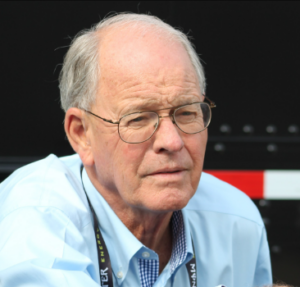
Jim France: Judge Denies Preliminary Injunction
District Judge Frank D. Whitney ultimately ruled in favor of NASCAR and CEO Jim France.2
In his decision, he stated that the plaintiffs had not sufficiently demonstrated the need for a preliminary injunction and therefore declined their request.
Judge Whitney, however, left the door open for 23XI and FRM to file a renewed motion if circumstances were to change, providing the teams with a potential path forward if they can present new evidence.
Sports journalist Bob Pockrass reported on the court’s decision, stating:
“Judge denied preliminary injunction for 23XI/FRM to run as chartered teams/pursue lawsuit. ‘At this time, Plaintiffs have not met their burden as required for a preliminary injunction. Should circumstances change, Plaintiffs may file a renewed motion for preliminary injunction,’” tweeted Pockrass.

NASCAR Fans Speak Out: Divided Opinions on Social Media
The response from the NASCAR fanbase was swift, with social media flooded with opinions on the court’s decision.
Many fans expressed frustration with NASCAR’s handling of the charter system, seeing the lawsuit as a much-needed challenge to the sport’s management practices.
Some fans suggested that NASCAR had undue influence over the court’s decision, with one fan commenting, “NASCAR bribed the judge,” and another asking, “How much is NASCAR paying this judge?”
Others showed support for 23XI Racing, viewing their decision to pursue legal action as a stand against the power dynamics within the sport. One fan tweeted:
“F**k @Nascar Standing with @23XIRacing.”
The fan reaction underscores the contentious nature of the charter system, which some fans and teams view as restrictive and monopolistic, potentially limiting opportunities for non-chartered teams to succeed.
The Charter System: A Blessing or a Curse?
The NASCAR charter system, introduced in 2016, was intended to provide stability for team owners by granting chartered teams guaranteed entry into every race, as well as a share of the prize purse.
However, critics argue that the charter system limits access for non-chartered teams, restricts competition, and concentrates power within NASCAR’s management.
For teams like 23XI and FRM, a charter means not only guaranteed entry but also financial stability through a share in the race prize money.
Losing a charter would mean competing for open slots in races, a move that could deter sponsors and place teams in financially precarious positions. By challenging NASCAR’s control over the charter system, 23XI and FRM are sparking a broader conversation within the industry about fairness, accessibility, and the future structure of the sport.
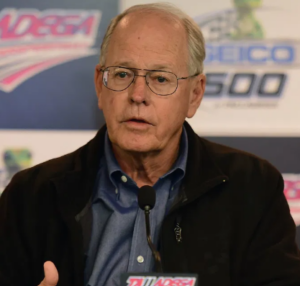
Jim France: Potential Fallout
The lawsuit’s outcome could have significant implications for 23XI Racing’s roster, particularly for driver Tyler Reddick. If 23XI were to lose its charter, Reddick’s future with the team could be in jeopardy.3
Racing without a charter would place the team at a disadvantage, as it would lack guaranteed race entries and face the risk of lower sponsorship revenue. Such instability could lead Reddick and other key figures to reconsider their positions with the team.
For 23XI and FRM, the stakes of this legal battle extend beyond financial concerns. The teams are advocating for an open and competitive environment within NASCAR, challenging the structures that they feel disadvantage teams without charters.
What’s Next: The Possibility of an Appeal
While Judge Whitney’s ruling denied the preliminary injunction, it did not mark the end of the lawsuit. The judge’s allowance for a potential renewed motion leaves the possibility open for 23XI and FRM to present further arguments in favor of an injunction.
Should they gather sufficient evidence or witness a change in circumstances, they may once again petition for chartered status as the lawsuit progresses.
Fans have speculated that an appeal may be on the horizon, with one fan remarking, “I fail to understand how they didn’t meet the burden when the open team agreement would require them to drop the lawsuit.
Appeal is coming!” For 23XI and FRM, the pursuit of an appeal could provide additional leverage in their ongoing efforts to reform NASCAR’s charter policies.
The Broader Impact: Will NASCAR Reform Its Charter System?
The lawsuit has raised important questions about NASCAR’s charter system and its impact on team dynamics.
While NASCAR’s current structure provides financial security for chartered teams, it can also be seen as limiting opportunities for teams outside the established system.
The debate has also sparked discussions about the potential for reform, with some fans calling for a more open system that allows for greater competition among teams, regardless of their charter status.
If 23XI and FRM are successful in challenging the current system, NASCAR could face increased pressure to implement reforms that create a more balanced playing field for all teams.

Also Read: Connor Zilisch (Racing Driver): Bio, Wiki, Career, Driving Philosophy And More Explained
Jim France: FRM Appeal Court’s Decision in NASCAR Lawsuit
In a recent legal standoff between NASCAR and 23XI Racing, along with Front Row Motorsports (FRM), both teams presented arguments in federal court to secure a preliminary injunction that would permit them to compete as independent, or “open,” Cup Series teams in the 2025 season.
Led by their attorney Jeffrey Kessler, they sought to challenge NASCAR’s competitive restrictions.
With the court’s refusal to grant the preliminary injunction, Kessler announced plans to appeal the verdict, which he deemed “disappointing.” Here’s a closer look at the case and its implications for NASCAR’s competitive landscape.
The lawsuit filed by 23XI Racing and FRM marks a bold attempt to push back against NASCAR’s regulations for Cup Series teams, which they argue unfairly restrict competition.
Currently, NASCAR imposes rules that effectively bar independent teams from the opportunity to participate in the premier Cup Series unless they surrender certain rights and agree to terms determined by the governing body.
According to Kessler, this system hampers competition and undermines the principles of fair play and equality in the sport. The teams assert that these policies also infringe upon federal antitrust laws, creating a monopolistic hold over the sport.
NASCAR’s Argument: Preventing Financial Exploitation
NASCAR’s defense, led by attorney Chris Yates, argued that the lawsuit was motivated by financial interests, suggesting that 23XI Racing and FRM’s claims were primarily aimed at obtaining monetary compensation.
Yates emphasized that allowing these teams to bypass NASCAR’s established structure could set a precedent that may ultimately undermine the financial sustainability of the sport.
NASCAR also argued that by participating in the sport, teams implicitly accept and agree to abide by NASCAR’s rules, which are designed to maintain competitive balance and protect the sport’s commercial interests.
After the court’s decision, Kessler released a statement on behalf of 23XI Racing and FRM, expressing disappointment at the outcome but acknowledging the court’s willingness to expedite discovery. Kessler indicated that the ruling did not affect the core merits of their case.
He announced their intention to appeal, stating that the teams remain committed to pursuing a “more fair and equitable system in NASCAR that complies with antitrust law.”
This appeal is a signal that the teams are willing to continue the legal battle, potentially setting a precedent for other NASCAR teams to pursue independent participation if the appeal is successful.
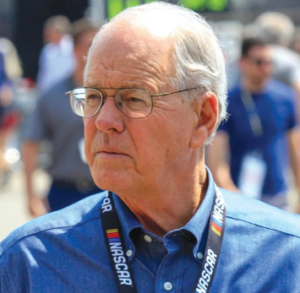
Jim France: Implications for NASCAR’s Business Model
If the appeal leads to a favorable decision for 23XI Racing and FRM, NASCAR could face significant changes to its current business model.
NASCAR’s regulations aim to create a controlled environment where competition can thrive within specific guidelines.
However, a ruling in favor of the plaintiffs could prompt other teams to seek similar arrangements, thus challenging NASCAR’s control. Additionally, the ruling could encourage other racing teams across the motorsport industry to question governing bodies and demand greater independence and fairer distribution of resources.
The lawsuit raises questions about whether NASCAR’s regulations will be modified to allow for more team autonomy. The existing system operates on a closed-circuit format, with limited entry opportunities for independent teams.
A favorable ruling for 23XI Racing and FRM could pave the way for other teams to challenge NASCAR’s rules, which could lead to more teams competing as open Cup Series participants in the future.
Such a change might also result in NASCAR revisiting its policies to balance competitive fairness with business interests, potentially fostering a more diverse and competitive racing environment.
Expert Opinions: The Future of NASCAR’s Regulatory Framework
- The lawsuit has attracted attention from legal and sports industry experts, who are divided on its potential impact.
- Some argue that the current NASCAR structure, though restrictive, helps maintain a level playing field and provides financial stability.
- Others believe that loosening NASCAR’s restrictions could introduce a wave of innovation and new talent into the sport.
- The case could set a landmark precedent for how other sports leagues and governing bodies balance business interests with fair competition.
- Experts suggest that even if 23XI Racing and FRM do not win the appeal, the lawsuit may spark a dialogue within NASCAR about potential regulatory reforms to ensure long-term growth and competitive equity.
- NASCAR fans and sponsors could also feel the effects of this legal battle. Fans of 23XI Racing and FRM may sympathize with the teams’ fight for independence, seeing it as a challenge to an established hierarchy.
- On the other hand, NASCAR’s loyal fan base may perceive the lawsuit as an unnecessary distraction from the sport they love.
- Sponsors, who invest heavily in NASCAR, will likely pay close attention to the outcome, as a shift in NASCAR’s structure could impact sponsorship strategies and brand alignments.
- The increased competition could lead to more sponsorship opportunities, diversifying the sport’s appeal and creating potential new revenue streams.
Also Read: Brad Keselowski’s RFK Racing Declines Third Open Car Amid Efforts to Secure Charter
